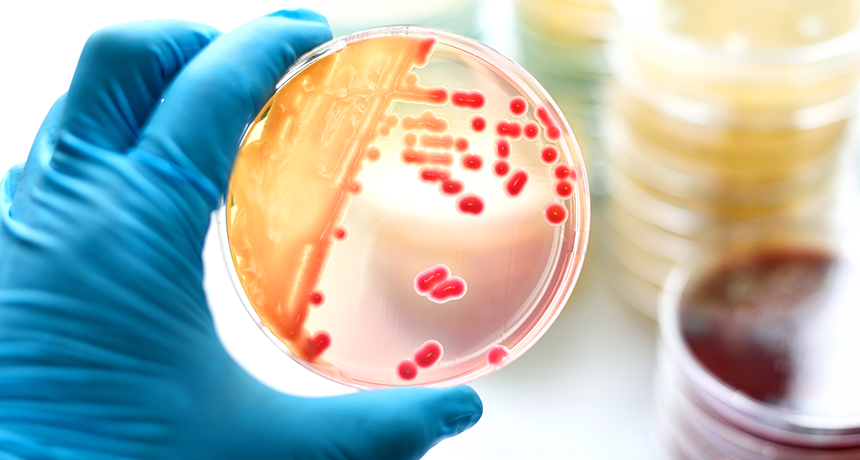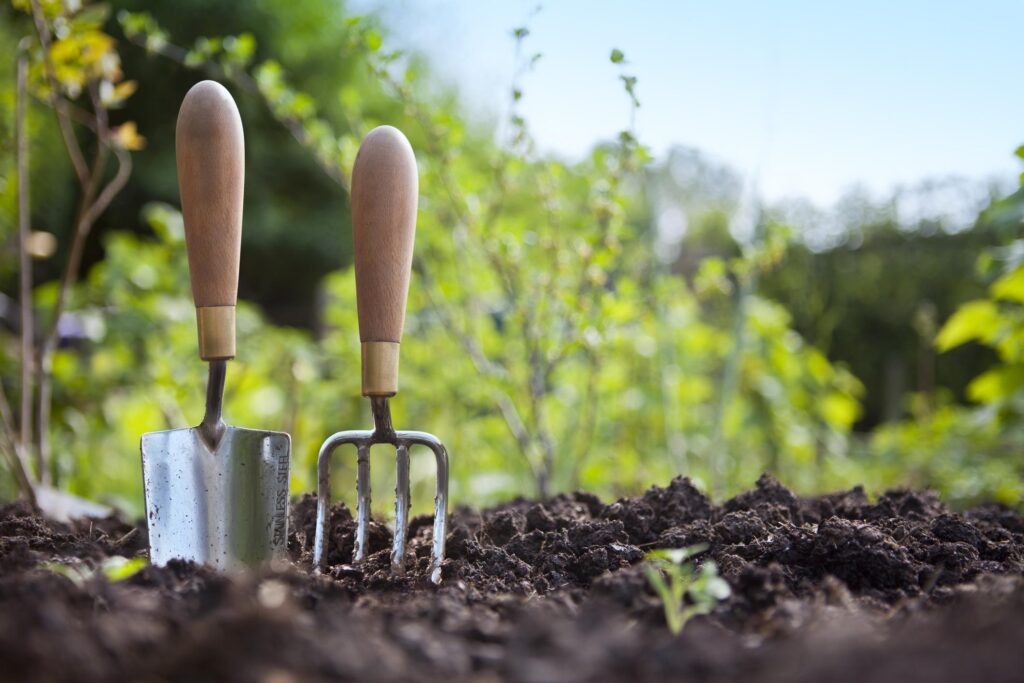1. The Devil’s Advocate
Time Stamp: 12:00

- Total Environment Guests
- Bacteria are all around us — and that’s okay
https://www.sciencenewsforstudents.org/article/bacteria-are-all-around-us-and-thats-okay- Bacteria play central roles in many ecosystems. These include the oceans, soil and atmosphere. They’re also a big part of the global food web. Bacteria make it possible for all other life on Earth to exist. That’s why scientists say these single-celled organisms are the invisible backbone of all life — at least on Earth.
- Scientists think they’ve identified fewer than one percent of all bacterial species.
- The methane eaters
- Some bacteria eat really weird things. Scientists have found bacteria that eat rocks, sewage — even nuclear waste.
- type of bacteria that live on the sea floor and gobble up methane.
- Methane is a greenhouse gas. Like carbon dioxide and some other greenhouse gases, it enters the air when people burn oil, gas and coal. There are also natural sources of methane, such as natural gas, rice production and cow manure. Greenhouse gases trap heat in the atmosphere. An excess of these gases in Earth’s atmosphere has been warming the global climate.
- Methane can seep out of the Earth on the sea floor. Some scientists say that even more methane would escape into the atmosphere if it wasn’t for marine bacteria.
- only by partnering with other single-celled organisms called archaea (Ar-KEE-uh)
- From bread to biofuels
- Those bacteria make carbon dioxide, acids and other flavorful compounds. But to function, sourdough bacteria need their friends. Isolate just one bacterial species from the mix and the chemical reaction won’t happen.
- These plant-based fuels can power cars or trucks. They are considered “green,” meaning more Earth-friendly, than fossil fuels.
- The enzymes currently used to make biofuels are expensive. They also don’t work well, Singer says. That’s why researchers all over the world are searching for enzymes that might lower the cost and speed the production of biofuels.
- Meta microbes
- Scientists needed a different way to tell bacteria apart and know when they’ve stumbled upon new ones. Key to this sleuthing: DNA.
- All of the cast-off genetic bits are known as environmental DNA, or eDNA.
- The sum of all the genetic material in an environment is called the metagenome (MET-uh-GEE-noam).
- They look for familiar patterns known as genetic sequences.
- Scientists can compare these patterns to the fingerprints of familiar bacteria to see where the new bacteria fall within the tree of life.
- Thirty years ago, all known single-celled organisms on the planet fit into a dozen major groups. Now there are about 120 known groups, or phyla (FY-lah).
- Little life, big data
- think about the planet as a machine, and all the ecosystems on Earth as the machine’s parts
- Earth Microbiome Project. More than 1,000 scientists around the world are helping collect samples.
- researchers have collected 100,000 samples. They’ve catalogued bacteria from the deepest ocean. They’ve found bacteria on the International Space Station, some 350 kilometers (220 miles) above Earth. They’ve discovered bacteria in exotic locations like the Amazon rainforest and ordinary places like public toilets.
- Discovering which bacteria lurk there — and why — is the first step to understanding how different ecosystems drive the vast machine we think of as life on Earth. Learning about bacteria may help us answer questions about how our planet works
- This is knowledge that can help us take better care of the planet.
2. Infernal informant
Time Stamp: 28:58

- We need to stop sanitizing everything and let bacteria back in our lives
https://nypost.com/2016/08/20/we-need-to-stop-sanitizing-everything-and-let-bacteria-back-in-our-lives/- Dr. Jack Gilbert, associate director of the Institute for Genomic and Systems Biology at Argonne National Laboratory, wants to make our hospitals dirty.
- Since a surgeon named Joseph Lister became the first to use antiseptic techniques in 1867 and save thousands of lives, modern medicine has worked tirelessly to create sterile medical environments — free of micro-organisms.
- According to Dr. Gilbert, the lack of a rich microbial ecosystem, especially in our hospitals, might be causing more harm than good, leading to drug resistant strains of powerful superbugs and infection-causing viruses.
- Science writer Ed Yong agrees with Dr. Gilbert, featuring him in his book, “I Contain Multitudes,” which tries to change our minds about bacteria. Yong points outs that “there are more bacteria in your gut than there are stars in our galaxy,” and of these fewer than 100 species of bacteria compromise our health. The rest, which coexist in and among us, aren’t just harmless — they protect us and make us who we are.
- We cannot live without the microbes we host.
- Microbes not only impact the shape of many of our organs, they replace dying and damaged cells and help our bodies absorb and store nutrients and fat.
- Humans first make contact with theirs in the birth canal. From that moment forward, microbes help bolster our immune systems, helping our bodies learn to live with viral diseases that enter our bloodstream.
- studies have shown that dogs, who come with their own set of allergy-suppressing microbes, are the most beneficial to a household’s microbial health, helping to strengthen the immune systems of its children.
- In some cases, microbes are simultaneous deadly and healing. C. diff, an infectious illness caused by an imbalance of otherwise healthy bacteria attacking the lining of the small and large intestines, can cause death.
- a cure with a success rate of 94 percent during its test phase was found through fecal implant
- Studies are showing simply consuming healthy bacteria isn’t the answer. The goal can’t just be adding microbes, it has to be finding a way to nurture and sustain them.
- In 2008, a group of villagers believed to have spent 11,000 years in isolation, were spotted in a remote part of the Amazon rainforest. In 2015, scientists discovered that thousands of years of seclusion had left them with the most diverse microbiomes they had ever seen.
- Those of us living in modern cities, towns and villages had destroyed so much of the healthy microscopic life that belonged in our bodies, it had rendered our own microbiomes comparatively deficient.
- the overuse of antibiotics and antiseptic cleaners is impacting our ability to maintain a balance of healthy microbes in our bodies and environments.

- Gardening for Earth Day: The five R’s in the garden
https://www.theledger.com/lifestyle/20200425/gardening-for-earth-day-five-rs-in-garden- the five R’s: refuse, reduce, reuse, repurpose and recycle
- The R’s are hierarchical with refuse being the first step and recycling being the final.
- A common wasted product is plastic containers for plants. The typical plastic containers for plants are not recyclable. Many avid gardeners do bare-root transplants to refuse waste for their planting containers.
- Reduce relates to the program’s biggest concern, water.
- Florida-Friendly Landscaping (FFL) Program’s first principle, “Right Plant, Right Place,” you can significantly reduce a landscape’s overall inputs, which include water, fertilizers and pesticides. Water Efficiently,” its third principle, “Fertilizer Appropriately,” and its sixth principle, “Manage Yard Pests Responsibly.”
- Reusing relates to our ability to use the same materials multiple times in the landscape. Reusing our garden materials can save us money and help reduce our overall consumption in the landscape
- by repurposing items in your landscape you create beautiful and unique features, giving a second life to discarded items. Incorporating repurposed materials into your landscape can create beautiful architectural features, colorful sculptures, or moments of inspiration.
- Recycling plant material within our landscape helps build healthy soil and provide nutrients to other plants. In turn, our healthier soils hold nutrients and moisture better, which makes for a much happier landscape
- refusing unwanted waste, reducing our landscapes inputs, reusing landscape material, repurposing discarded or unwanted items, or by recycling our yard waste
3. Creature Feature
Time Stamp: 49:00

- Devs
https://www.fxnetworks.com/shows/devs
https://en.wikipedia.org/wiki/Devs_(miniseries)- American science fiction thriller television miniseries
- created, written, and directed by Alex Garland
- Ex Machina, Annihilation
- premiered on March 5, 2020, on Hulu, as part of FX on Hulu
- series is centered on Lily Chan (Sonoya Mizuno), a computer engineer whose boyfriend’s death is being investigated by Amaya, the quantum computing company they work for, and run by Forest (Nick Offerman).
- explores themes related to free will and determinism, as well as Silicon Valley culture.
- the world turns on a deterministic model of cause and effect
- The name of the project, it’s not Devs. The V is Roman, so actually a U.” In other words, this whole time the Devs team has really been the Deus team, the Roman word for God. “It was just a private joke.”
- Devs: Alex Garland on Ex Machina Connection and Predetermined Endings
https://www.denofgeek.com/tv/devs-alex-garland-on-ex-machina-connection-and-predetermined-endings/- in both fictions, a tech CEO attempts to rebuild the world in his own image.
- Garland forever links his first series with his first directorial effort, and completes the phrase “Deus Ex Machina.” The term is Latin for “God from the Machine,”
- Explains Garland, “The real point of connection to me was that [in] Ex Machina, we have a man acting as if he was God. In Devs, you have a man attempting to create God. It was two sides of the relationship with God.”

